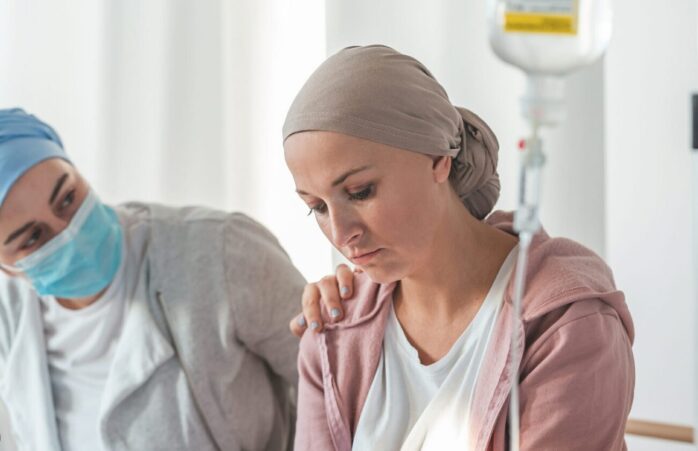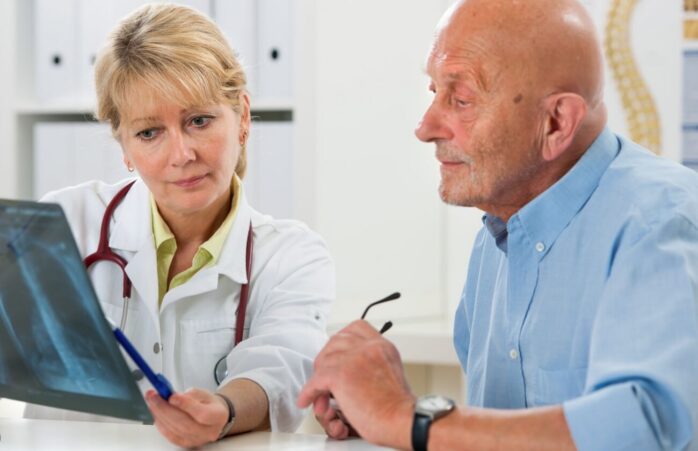
Hearing that you have a cancer diagnosis can make it feel like time is standing still. There are so many questions that you don’t have answers to and you may even be wondering about your chances of recovering and living a long and healthy life. While medicine cannot answer all of your existential questions, it can give you a path forward through different treatment options.
Navigating a cancer diagnosis is about so much more than just getting treatment however. From gathering a good support system to looking at natural treatments and even making different lifestyle choices, here are your next steps after a big diagnosis like cancer.

Gather Your Support System
You may feel isolated after the initial shock of a cancer diagnosis, but it’s crucial to remember you’re not alone. The first step is to build a robust support system that includes family, friends, and professional counselors or support groups.
This network will provide not only emotional backing but also practical assistance with research, decision-making, and day-to-day tasks. You may also seek out a community of individuals who also understand your journey and can offer invaluable reassurance and encouragement as you navigate the road ahead.
Deep Dive into Research
In an era where information is at our fingertips, arming yourself with knowledge about your specific type of cancer is empowering. Understanding the biology of your cancer, the staging, and the treatment options available can help demystify the disease and the journey you’re walking on.
This is where your tech-savvy mindset comes into play — utilize reputable medical journals, cancer research websites, and technology platforms that offer insights into the latest treatments and clinical trials. Knowledge equips you for informed discussions with your healthcare team and helps make decisions that align with your values and goals.
As you look at this research, you’ll likely encounter discussions on the importance of lifestyle factors and their impact on health outcomes. This is a gentle reminder of the power of preventive measures and how certain lifestyle choices can create a lower risk of cancer, reinforcing the importance of informed, health-conscious decisions in our lives.

Consult With Multiple Specialists
After a cancer diagnosis, your primary doctor will likely refer you to one or more oncologists—specialists in cancer care. However, given the stakes, seeking a second or even third opinion is a wise strategy.
Different specialists might have varied experiences, perspectives, or knowledge of the latest treatments and technologies in the battle against cancer. This step is about leveraging the breadth of medical expertise available to you, ensuring that your treatment plan is comprehensive and customized to your specific situation.
Consulting with multiple specialists also allows you to gauge the level of comfort and trust you have with your healthcare team, an often overlooked but critical component of your treatment journey.
Embracing Modern Medicine and Holistic Care
Once you have a solid understanding of your diagnosis and have consulted with specialists, the next step is to explore your treatment options. This stage involves a detailed discussion with your healthcare team about the benefits and side effects of various treatments, such as surgery, chemotherapy, radiation, and immunotherapy.
Technology and business professionals will appreciate the importance of data in these discussions, as treatment decisions often involve weighing statistical outcomes against personal values and quality of life considerations.
In addition to conventional medical treatments, many patients find value in exploring natural or holistic treatment options. These may include dietary changes, supplements, acupuncture, meditation, and even exercise.
These can all help manage symptoms and side effects and improve overall well-being. There’s growing interest in understanding how these natural approaches can support traditional cancer treatments.
For instance, when discussing esophageal cancer natural treatment options, you may explore research on specific diets or natural supplements that have shown promise in supporting the body’s response to conventional treatments.

Making Lifestyle Adjustments
A cancer diagnosis often serves as a catalyst for reevaluating lifestyle choices. While it’s only one piece of the puzzle, adjusting your lifestyle can significantly support your treatment and recovery process.
You’ll want to adopt a nutritious diet rich in fruits, veggies, and whole grains and stay physically active as per your body’s capacity. You can also manage stress through mindfulness practices and also eliminate harmful habits such as smoking or alcohol consumption.
Technology can help you in this process, with apps and devices designed to track nutrition, exercise, and stress management, helping you to maintain a focus on wellness and recovery.
Importance of Mental Health Care
Addressing the mental and emotional toll of a cancer diagnosis is as crucial as tackling the physical aspects of the disease. The Importance of Mental Health Care section underscores the vital role that psychological support plays in a patient’s overall well-being and recovery journey.
It advocates for regular consultations with mental health professionals, such as psychologists or psychiatrists, who specialize in helping individuals cope with the profound stress, anxiety, and depression that can accompany a cancer diagnosis. This segment emphasizes the benefits of tailored therapy sessions, stress-reduction techniques, and possibly medication to manage mental health symptoms.
It also highlights the value of incorporating mindfulness practices, such as meditation and yoga, to enhance emotional resilience, providing a holistic approach to the patient’s care plan.

Plan for the Future
Something happens in the brain when you plan for the future. No matter what the doctors say about your diagnosis or prognosis, making future plans can help you mentally prepare for the path ahead. You’ll want to look at everything from financial planning options to manage medical costs, to getting accommodations from work for additional appointments, and even looking at the ways that different treatment options will impact your lifestyle.
Some patients like to take trips and spend extra time with family, and they want to know how to fit these trips in when also getting cancer treatment. With the many medical and technological advances out there, many people recover from cancer and go on to live a healthy and full life afterward.








